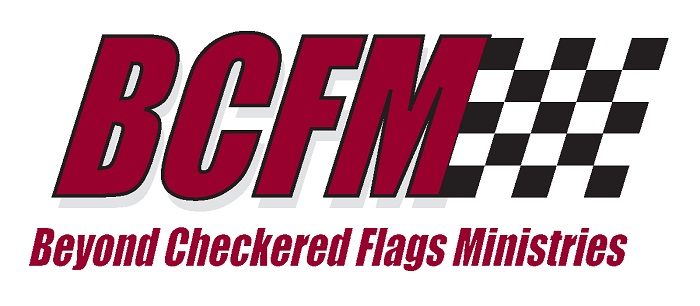Chapel Service
Colorado National Speedway
August 14, 2010 – Part 2
Miller Motorsports Park, Tooele, UT
September 12, 2010 – Part 3
Montana Raceway Park
August 7, 2010 – Part 1
“Mechanics of Forgiving”
(Part 2 of the 3 parts)
Bob Butcher
Continuing with Part 2 today:
When Leeanne & Sarah were growing up and they did something to forgive, or I had to ask their forgiveness, it was always important to me that they understood the forgiveness we all have in Christ, which enabled me to forgive them. Then after the process of repentance & forgiveness it was always “I love you & want to be Friends Forever, no matter what.” I wanted to model the truth that repentance & confession will always lead to complete restoration of our relationship …even when there were consequences along the way. Sometimes there were and despite that we are close friends today & I consider that a GREAT privilege & success.
Many people have never understood or experienced this kind of forgiveness and struggle with feelings of guilt, anger, & estrangement.
Whenever others wrong you, YOU have the opportunity to introduce them to the wonderful world of true forgiveness …and glorify God
Ideally, repentance should precede forgiveness. However, serious offences without repentance may need a 2 stage approach.
- First: We need to have an attitude of forgiveness
- It means living out the 1st promise of forgiveness:
“I will not dwell on this incident.”
- That also means no revenge or retribution in thought, word, or action.
- Instead, you pray for them & stand ready to grant forgiveness when they repent.
- This attitude protects you from bitterness & resentment when the other person takes a long time to repent.
- Second: Actually granting them forgiveness
- It is a commitment to make the other 3 promises to the person.
“I will not bring this incident up again & use it against you
“I will not talk to others about this incident”
“I will not let this incident stand between our relationship”
*It is not appropriate to make these promises until the offender has repented. – Until then, you may need to talk to the offender about the sin or seek the involvement of others to resolve the matter.
Confession’s 7 A-Rules lead to repentance & forgiveness
- Address everyone involved
- Avoid if, but, and maybe
- Admit specifically
- Acknowledge the hurt
- Accept the consequences
- Alter your behavior
- Ask for forgiveness
Can you ever mention the sin again?
- The commitment here should not used to prevent you from dealing honestly & realistically with a recurring pattern of sin.
- This is only used for the good of the person & THEIR benefit
- Otherwise you rob people of their hope that they can change.
What about consequences?
- Forgiveness does not automatically release the offender from all the consequences of their actions.
- God forgave the Israelites who rebelled in the wilderness but decreed that they would die without entering the Promised Land …including Moses.
- God forgave King David for his adultery & murder but allowed the natural consequences to flow from his sin.
- When He does allow consequences to flow, it is to teach us and others not to sin again.
- Following God’s example you should remove any walls that stand between you and the repentant offender.
- It may also be appropriate to remove some of the consequences – like property damage costs for example, from a sincerely repentant person.
*However, there are extenuating circumstances from instances of severe injustice like rape, incest, abuse etc.
- Forgiving someone does not mean the offense never happened
- Forgiving someone does not mean you will ever forget
- Forgiving someone doesn’t mean you have to be friends
- Forgiving someone doesn’t mean you have to hang out with them
- Forgiving someone doesn’t mean you even have to see them again
In some cases the person may be prone to deceit, danger, manipulation, or intimidation.
However, we must give the offender opportunity to demonstrate true repentance, restitution, and consistent growth.
- Reconciliation may or may not be available someday
- This lengthy time period allows trust to be earned slowly
The key here is dealing with yourself.
- Forgiving sets YOU free.
- Forgiving lets God heal you & work on the other person HIS way.
Before we omit a very important consideration here in this whole issue of forgiveness let’s assess OUR contribution to the problem.
- Even if you did not start the dispute stop and consider:
- Our lack of understanding
- Our careless words
- Our impatience & failure to respond in a loving manner
- If this happens it is easy to behave as though the other person’s sins cancel ours.
- We then have a self-righteous attitude
We might also hold onto Sinful Attitudes & Unrealistic Expectations
- They may be consciously or unconsciously
- We can withhold forgiveness because we believe the offender must earn or deserve our forgiveness.
- We might want to punish others or make them suffer
- Maybe we want a guarantee that such an offense will never happen again.
This is totally inconsistent with God’s command & His style of forgiveness:
- There is no way we can earn or deserve God’s forgiveness (Romans 6:32)
- God also does not withhold forgiveness to punish people who have repented of their sins (1 John 1:9)
- God also does not demand our guarantee regarding future conduct. (Luke 17:3-4)
The bottom line is:
- Forgiveness is based upon repentance, NOT on guarantees!
Also ALWAYS REMEMBER:
““Vengeance is Mine, I will repay.” The Lord will judge His people.” (Hebrews 10:30)
Part 3 at Miller Motorsports Park, September 12.
There we will meet both days to finish plus have an open discussion with question and answer time
Bibliography / References / Helps:
First & Foremost: The Bible
Versions:
New King James
New American Standard
The Message
YWAM (Youth With A Mission)
MRO (Motor Racing Outreach)
Church On The Hill, Salem OR
Life Church, Salem OR
Books:
The Peacemaker
A Biblical Guide to Resolving Personal Conflict
Ken Sande
Publisher: Baker Books


